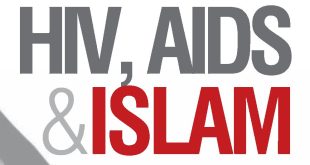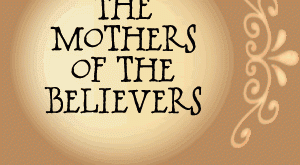 Part 1 In light of this extreme care to trace deep roots of the tribes to the Islamic tree of lineage, it becomes clear that many forms of such twisting, modification and addition have come upon the sources of these authentic Islamic narratives springing from the Prophetic biography, which is impermissible, since these are religious narratives.
Part 1 In light of this extreme care to trace deep roots of the tribes to the Islamic tree of lineage, it becomes clear that many forms of such twisting, modification and addition have come upon the sources of these authentic Islamic narratives springing from the Prophetic biography, which is impermissible, since these are religious narratives.
Yet, if we consider the psychological and social aspect of the issue, we would realize that Muslims of Africa seek through such allegations to affirm their deep-rooted existence in Islamic history, their close relation to the noble Prophet, and their praiseworthy achievements in the service of Islam.
Such target coincides with the definition of identity as adopted in the beginning of the present article, that is “belief in the creed of this Ummah, priding oneself on belonging to it”.
In addition to this target and the pivotal reason for the emergence of such phenomenon, it serves several social functions in the African community, as it helps – on one part – in lending spiritual legitimacy to the social, political or religious rank and status earned or sought to be earned by each tribe, and in demanding others to acknowledge it.
The names of authoritative figures, in the African milieu, bear denotations that intersect with all walks of life and carry multi-dimensioned communicative messages.
For instance, the Nyamakala tribes – who are the popular narrators in west African communities and biographers of kings – claim affiliation with Suraqah ibn Ja`sham, and allege that he was the poet of the Prophet(peace and blessings be upon him).
Therefore, no other tribe can compete with them in terms of this function, so long as it is based on firm grounds and on historical legitimacy derived from the Prophetic biography, as alleged by them.
As for the Manding tribes, which belong to the heroic figure, Tiramagan, who was one of the founders of the Mali Kingdom, they claim that Tiramagan’s grandfather was one of the Prophet’s Companions and that, in the Battle of Badr, he had provided the Prophet with nineteen intrepid knights.
They also claim that, during this fierce battle, all those knights, with the exception of one, fell martyrs. Hence, military leadership in the Manding community is indisputably attributed to this tribe.
On the other hand, this phenomenon has social functions, which include effecting firm mutual bonds among the tribes that bring about the cohesion of that community and that preclude internal struggles among these tribes over specific functions or over special social positions exclusively monopolized by a tribe over generations, knowing that this occurs in the context of a complex community based on division of social functions among tribes, where identities of tribes and clans are formed through such functions.
Another example regarding the role of such allegations in procuring social solidarity is that the Camara Kunda and Seesay Kunda clans in Gambia allege that their ancestors had been living as neighbors in Makka al-Mukarramah, from which they emigrated to the ancient Kingdom of Mali, before they settled down in Gambia.
During their journey from Makkah to Mali, a documented loyalty alliance is signed between the two clans. This belief still has positive bearings in effecting a peerless harmony between the two clans, and in settling all forms of disputes and rivalries that may occur between any of the two clans and any other clan in case the second of the two clans mediate for the dispute settlement.
This is due to the sanctity of their earlier neighboring relationship in Makkah. So, it is unlikely that any individual of these two clans could renounce such common “history”.
Second: Significance of Names in Denoting Islamic Identity
 Annexed to collective affiliation of African tribes with the Companions and the Arabs is a phenomenon of African Muslims willing taking up of ‘Islamic’ names and abandoning their tribal names.
Annexed to collective affiliation of African tribes with the Companions and the Arabs is a phenomenon of African Muslims willing taking up of ‘Islamic’ names and abandoning their tribal names.
In this context, for instance, we find that the first to engage with such a phenomenon were the kings too, as some of those earlier kings assumed the names of caliphs and kings belonging to the earlier stages of Islam.
So, the Sultans of Songhai (Ghau) for instance assumed the names of the rightly-guided caliphs to the extent that the real names of some of those kings were not known.
An example is the inscription on a marble tombstone discovered in Ghau, the Capital of Songhai, which reads, “This is the grave of King al-Nasir li-Dinillah, al-Mutawakkil `ala Allah, Abi Bakr ibn Abi Quhafa, may Allah show mercy to him, fill his grave with light, bliss his soul, and make Paradise his reward and abode” (He died on Friday night, 19 Rajab 503 A.H./1110 A.C.).
An inscription on another tombstone reads as follows: “This is the grave of the revered, highly esteemed, king an-Nasir li-Dinillah, al-Mutawakkil `ala Allah, al-Qa’im bi-Amrillah, al-Mujahid fi sabilillah, Mama bin Kama bin A`?, named `Umar ibn al-Khattab, may Allah show mercy to him” (He dies on Sunday, 17 MuharramMuharram is the first month of the Islamic calendar. It is one of the four sacred months of the year when warfare is banned. It precedes the month of Safar. The tenth of Muharram is known as Ashura, an important day of commemoration in Islam. More, 514 A.H./1121 A.C.).
Let’s pause for a while to consider the indication of names in denoting distinctive identity, so us to clarify its relation to the Islamic impact in the identity of the African Muslim:
Indeed, the names in – the African milieu – bear denotations that intersect with the different walks of life, and carry multi-dimensioned communicative messages, which reveal ethnic identities and creedal affiliations.
The name of Mosi tribes, for instance, is illustrated by anthropologist Maurice Houis as indicating an accurate appellative system that crystallizes in two categories that run as follows:
1. Tribal or clannish appellation name (Sondre: pl. Sondra), which is the name carried by whoever belongs to the clan, male or female, as distinguished from those belonging to other clans.
2. The personal name (Yure: p. Yuya), which distinguishes every individual inside the tribe, knowing that such a name is determined according to the conditions and circumstances surrounding the birth of the named person.
So, if labor pangs come upon a woman while she is in the field, the newborn is named ‘Kobo’, and if the pangs come upon her while she is in the market, the newborn is named ‘Daga’. This type of names carries bifurcating social and religious communicative messages.
So, if the infant born on the night of a Fulani feast, it is called ‘Djoulde’, meaning ‘feast’, and if born after a previous miscarriage, it is called ‘Wuri’, meaning ‘surviving’.And among the most important functions a name involves in the African milieu are the following:
– The name and its denotation of tribal beliefs: Tribal beliefs and mythologies play an effective role in determining this type of names, as a certain name is chosen for a newborn with the purpose of safeguarding it from envy or from death, or of seeking the pleasure of ancestors’ spirits, exactly as is done in certain conventional cultures, in which a relation is maintained between a person’s name and preclusion of harm or obtainment of benefit.
– An examples is that Bambara tribe gives a newborn the name ‘Nyama’, meaning undesirable, or any other strange name to the infant born following two miscarriages.
– Another example is that the Wolof tribes – as is indicates in Amir Samb researches – give the newborn a strange name that is believed to protect it from the twists and turns of fortunes, such as ‘Lêmudê’, meaning that it shall die, ‘Amul Yakar’, meaning that there is no hope, or ‘Kène Begul, meaning that it is undesirable.
– Names and denotation of social circumstances: In most African communities, the choice of newborns’ names is the right of the chief of the clan alone.
Yet, such choice– they claim – follows ‘consultations’ with the spirits of ancestors, after which the newborn is given a name that has a direct relation to the current circumstances in the tribe.
So, if a child is born at times of disagreement and discord in the tribe, for instance, its name carries a deterrent message from the ‘ancestors’ spirits’ to the tribe, like ‘Dayelle’, meaning ‘(there should be) no disagreement!’, for Kasina tribe in Burkina Faso.
– The name and its designation of age stage and social status of its holder: Examples to this include the case of the Basari tribe, located in eastern Senegal, where the name is effectively employed in all man’s life stages, being renewed according to the development of one life, one’s activity and position in the tribe.
Thus, when a child is born it automatically carries the clannish name of its mother and in turn another name is combined with it, being chosen according to its gender and its sequence in the series of its siblings.
Thus, when it starts to walk, its mother – or peers – gives it a nickname by which it is called. When the child reaches the initiation stage, their childish nickname is forsaken and they begin to carry a mature ‘viril’ name designating adulthood.
Then, when the youth engages in secret associations and participates in masquerades (Danse des masques), they are given a ‘mask’ name, and it becomes forbidden to call them during such masquerades by their virile names.
– Name and its designation of familial or social rank: This is when the individual’s name is determined according to their order and gender in the family. Accordingly, the Fulani people – for instance – give the firstborn ‘Hamadi’, the second ‘Samba’, and the third ‘Demba’.
As for the Bambara, they call the firstborn female ‘Nyele’, the second ‘Nya’, and the third ‘Nyeleba’. They also call the firstborn male ‘Nci’, the second ‘Nsan’, and the third ‘Ngolo’, and so on. Basari, on the other hand, call the firstborn female ‘Tyra’, and the firstborn male ‘Nsan’ and the second ‘Kala’.
To Be Continued…
Source : http://www.onislam.net
Post Disclaimer | Support Us
Support Us
The sailanmuslim.com web site entirely supported by individual donors and well wishers. If you regularly visit this site and wish to show your appreciation, or if you wish to see further development of sailanmuslim.com, please donate us
IMPORTANT : All content hosted on sailanmuslim.com is solely for non-commercial purposes and with the permission of original copyright holders. Any other use of the hosted content, such as for financial gain, requires express approval from the copyright owners.
 Sri lanka Muslims Web Portal Sri Lanka Muslims News Center
Sri lanka Muslims Web Portal Sri Lanka Muslims News Center
 Donate
Donate


